- How Much Weight Can You Realistically Lose in 3 Months? - January 14, 2024
- How To Lose 1kg a Week (Guaranteed) - August 20, 2023
- How To Count Calories (or Estimate) and Stay on Track When Eating Out at Restaurants - July 25, 2023
TL;DR. In the long term, yes, but you still need to ensure you’re in a calorie deficit
What is a Diet Break?
No, it doesn’t involve Kit Kats.
Although it could if you wanted it to…
A diet break, otherwise known as a refeed is a planned and controlled increase in calories after a period of dieting.
By definition, if you’re dieting, you’ll be in a calorie deficit, so when you take a break, you should bring your calories up to maintenance for a period of time (one week is usually enough).
In the short term, taking a diet break might mean that your weight loss stalls for a period of time, but in the long term it can help with adherence, and help ensure that you do actually achieve your final target weight.
Depending on how much weight you have to lose, you could end up being in a calorie deficit for a long time. For example, if you wanted to lose 30lbs (14kg), you’d likely be looking at losing approximately 1lb per week, that’s 30 weeks. 30 weeks is over 7 months, i.e. a long time!
Being in a deficit for that amount of time would not only be mentally taxing, but there would also be some downregulation in your metabolism (N.B. this is NOT starvation mode), which would mean that at some point, the calories you were eating to lose weight would eventually become your ‘maintenance calories‘ (i.e. you’d no longer be losing weight, but rather staying the same weight).
A diet break, i.e. upping your calories won’t ‘stoke’ your metabolism, but it could help you burn a few more calories than you normally would by making you subconsciously increase your NEAT.
How Do Diet Breaks Help With Fat Loss?
A diet break sounds counterintuitive if your goal is fat loss, but they can be beneficial from both a psychological and physiological perspective
Psychology
Dieting is tough.
If anything it’s more difficult mentally than physically; week after week of calorie restriction can take its toll, particularly if you’re on very low calories.
Dieting means you need to be conscious of what you’re eating all day, everyday. Even if you’re on a flexible diet, calorie counting is still required to make sure you’re hitting your daily targets.
A break from this creates some mental headspace, and after weeks of dieting, the likelihood of overeating and undermining any results is highly unlikely
Physiology
When you diet, you’ll go through a process of ‘adaptive thermogenesis’’, i.e. a reduction in metabolic rate as calories come down.
As this meta analysis finds;
Adaptive thermogenesis may help to partially explain the increasing difficulty experienced when weight loss plateaus despite low caloric intake”Trexler at al, 2014
This essentially means that your body will reduce the number of calories it uses on a daily basis, as your body weight comes down, meaning you have to keep lowering calories if you want to lose more weight.
Here’s what that might look like hypothetically;
This is based on the TDEE calculations for a 40 year old female and shows that, as weight comes down, the amount of calories used (per day) also comes down.
Why?
A lighter body doesn’t need as much energy to ‘keep alive’, also moving a lighter body around (walking, running, picking up the Tv remote) requires less energy.
That’s right, contrary to popular belief, the lighter you are, the lower (or slower) yout metabolism will be.
This means that as you lose weight, you’ll need to keep lowering your calories if you want to continue the trajectory of weight loss that you’re currently on (or increase activity).
Otherwise, this happens;
Note that the blue line (weight) plateaus as the TDEE (total daily energy expenditure) plateaus. This is because the made-up person in this scenario has ‘metabolically adapted’ to their new weight, causing their weight to plateau
Taking a diet break however could temporarily arrest this decline in metabolic rate; so while weight loss could stall temporarily, it may mean that a diet can be more sustainable, i.e. go on for longer.
In this scenario, calories are temporarily increased by 10% (from 1200 to 1320) for two weeks (week 15 and 16).
This is such a small increase that’s unlikely to significantly impact weight – if everything stayed equal it could, but it’s likely that TDEE will go up slightly to compensate for it. Even if your weight did go up, it would only be by 0.25kg a small price to pay for the ability to continue dieting for several more weeks!
Also, who wouldn’t want to take a break from a diet?!
What Does the Science Say?
The scientific literature supports the use of diet breaks to overcome some of the effects of adaptive thermogenesis;
This sixteen week study of 51 obese men, otherwise known as the MATADOR study (Minimising Adaptive Thermogenesis And Deactivating Obesity Rebound) split the men into two groups. One used consistent energy restriction while the other used intermittent energy restriction (i.e diet breaks) across the period.
The intermittent energy restriction group lost more weight across the study period, but crucially also gained less weight when the study finished.
“intermittent [energy restriction]… resulted in weight loss (fat loss) without greater loss of FFM, attenuation of the reduction in [resting energy expenditure], and superior weight loss retention after 6 months, compared with an equivalent ‘dose’ of continuous [energy restriction]”
Byrne et al, 2017
The MATADOR study is at least solid evidence that this style of dieting, i.e. a calorie deficit broken up by periods of maintenance calories (otherwise known as intermittent energy restriction) works for regular people and should be considered before you start a diet.
Are Diet Breaks Necessary?
While they can help some people, diet breaks are NOT necessary for successful weight loss.
In fact, when things are going well, the likelihood is that you won’t want to take a diet break, you’ll just want to press ahead and keep losing weight at the rate you have been.
The thing is, when things are going well, that’s the perfect time to take a break, waiting until you have a tough week is likely leaving it too late.
The solution? Listen to your diet coach, they’ll have the experience to know exactly when you should and shouldn’t take a diet break.
How Often Should You Have Diet Break?
How often you should have a diet break depends on a few different factors
How Long Have You Been Dieting For?
Diet breaks should be used strategically and sparingly. Using them too often will mean that it takes you longer to reach your goal. Not using them at all could mean a heavy amount of adaptive thermogenesis and plateaus that you can’t overcome.
There are no right or wrong answers as to how often you should take a diet break, your weight loss coach will be the best person to advise on when (based on your current rate of weight loss), but a good rule of thumb might be to take a week-long diet break every 8 weeks.
How Close Are you to your target?
If you’re close to your target, you may feel like you want to push through the final few weeks. But this could be a mistake. Weeks you’re dieting and constantly food-focused, weeks can feel like months so even a couple of days at maintenance calories could get you to your target more quickly.
Has progress stalled?
If progress has stalled it could simply be that your calories are too high and you need to bring them down. However, if you’re already on very low calories (anything below the 1,200 mark) and progress is stalling then bringing calories back up to maintenance (or just increasing by 10%) could help in a few different ways
- It can provide mental respite and allow you to go again harder after your diet break
- It can stabilise a reduction in REE (resting energy expenditure), meaning that when you do lower calories again, it could result in more weight loss
- It can allow you to do a little more exercise, which can increase TDEE, meaning that you could still be in a deficit because energy output is higher
Are you finding things difficult?
If you’re simply finding the diet hard from a physiological point of view, a break could be the difference in carrying on, and quitting altogether.
Long-term adherence is key with diets, so sticking to it at all costs is the only thing that matters, even if taking a break means it takes a little longer.
FREQUENCY OF DIET BREAKS
There is no ‘ideal’ amount of diet breaks to take, and it may not even be ideal to have on at regular intervals, but it’s certainly a good idea to take a break when the going is good rather than when weight loss has stalled. Far better to have a planned weight loss plateau than an unplanned one. Your coach will be able to tell you the best time to take a break from dieting.
How Long Should Your Diet Break Be?
As with any weight loss tactic, it’s important to not go overboard and use the fact that diet breaks can be beneficial to rationalise binging for weeks on end.
A diet break is not an excuse to eat excessive amounts of calories for several weeks; doing this will only set you back further from your goal as opposed to helping you get there as soon as possible.
For most people, I would recommend a diet break of no longer than one week. This is long enough to give you mental respite from the rigours of dieting and potentially increase your metabolism slightly, but not so much that you give yourself the opportunity to slip into a calories surplus, at which point you’d start gaining weight.
You could of course take a 2-week diet break, but the longer you’re at maintenance calories, the longer it’ll take you to get to your ultimate goal.
Let’s take a look at a typical 16-week ( month diet without a diet break. In this scenario, we have someone weighing 200lb (90.7kg) wanting to lose 16lbs (7.2kg). A realistic rate of loss is around 1lb per week with no diet breaks, meaning it takes us 16 weeks to lose 16lbs at an average daily calorie deficit of 500. Not bad but we could go a bit quicker…
| WEEK # | TARGET WEIGHT LOSS (LBS) | ACTUAL WEIGHT | TARGET WEIGHT LOSS (KG) | ACTUAL WEIGHT | CALORIE DEFICIT |
| 1 | 1 | 199 | 0.45 | 90.25 | 500 |
| 2 | 1 | 198 | 0.45 | 89.8 | 500 |
| 3 | 1 | 197 | 0.45 | 89.35 | 500 |
| 4 | 1 | 196 | 0.45 | 88.9 | 500 |
| 5 | 1 | 195 | 0.45 | 88.45 | 500 |
| 6 | 1 | 194 | 0.45 | 88 | 500 |
| 7 | 1 | 193 | 0.45 | 87.55 | 500 |
| 8 | 1 | 192 | 0.45 | 87.1 | 500 |
| 9 | 1 | 191 | 0.45 | 86.65 | 500 |
| 10 | 1 | 190 | 0.45 | 86.2 | 500 |
| 11 | 1 | 189 | 0.45 | 85.75 | 500 |
| 12 | 1 | 188 | 0.45 | 85.3 | 500 |
| 13 | 1 | 187 | 0.45 | 84.85 | 500 |
| 14 | 1 | 186 | 0.45 | 84.4 | 500 |
| 15 | 1 | 185 | 0.45 | 83.95 | 500 |
| 16 | 1 | 184 | 0.45 | 83.5 | 500 |
| TOTAL | 16 | 7.2 | 8000 |
If we up the deficit to 1,000 calories per day, we can lose double the amount of weight at the same time. It’s an aggressive deficit through, so we can utilise a couple of diets breaks in weeks 8 and 14 (for example) to offer a mental and physical respite. You can see that by using the two diets breaks to make things easier, we can lose a total of 28lbs or 12.6kg.
| WEEK # | TARGET WEIGHT LOSS (LBS) | ACTUAL WEIGHT | TARGET WEIGHT LOSS (KG) | ACTUAL WEIGHT | CALORIE DEFICIT |
| 1 | 2 | 198 | 0.9 | 90.1 | 1000 |
| 2 | 2 | 196 | 0.9 | 89.2 | 1000 |
| 3 | 2 | 194 | 0.9 | 88.3 | 1000 |
| 4 | 2 | 192 | 0.9 | 87.4 | 1000 |
| 5 | 2 | 190 | 0.9 | 86.5 | 1000 |
| 6 | 2 | 188 | 0.9 | 85.6 | 1000 |
| 7 | 2 | 186 | 0.9 | 84.7 | 1000 |
| 8 | DIET BREAK | 186 | DIET BREAK | 84.7 | 0 |
| 9 | 2 | 182 | 0.9 | 83.8 | 1000 |
| 10 | 2 | 180 | 0.9 | 82.9 | 1000 |
| 11 | 2 | 178 | 0.9 | 82 | 1000 |
| 12 | 2 | 176 | 0.9 | 81.1 | 1000 |
| 13 | 2 | 174 | 0.9 | 80.2 | 1000 |
| 14 | DIET BREAK | 174 | DIET BREAK | 80.2 | 0 |
| 15 | 2 | 172 | 0.9 | 79.3 | 1000 |
| 16 | 2 | 170 | 0.9 | 78.4 | 1000 |
| TOTAL | 28 | 12.6 | 14000 |
Here are how the two approaches look on a graph alongside each other… Neither approach is right or wrong, but the diet break example shows how you could use diet breaks to make an aggressive deficit more manageable.
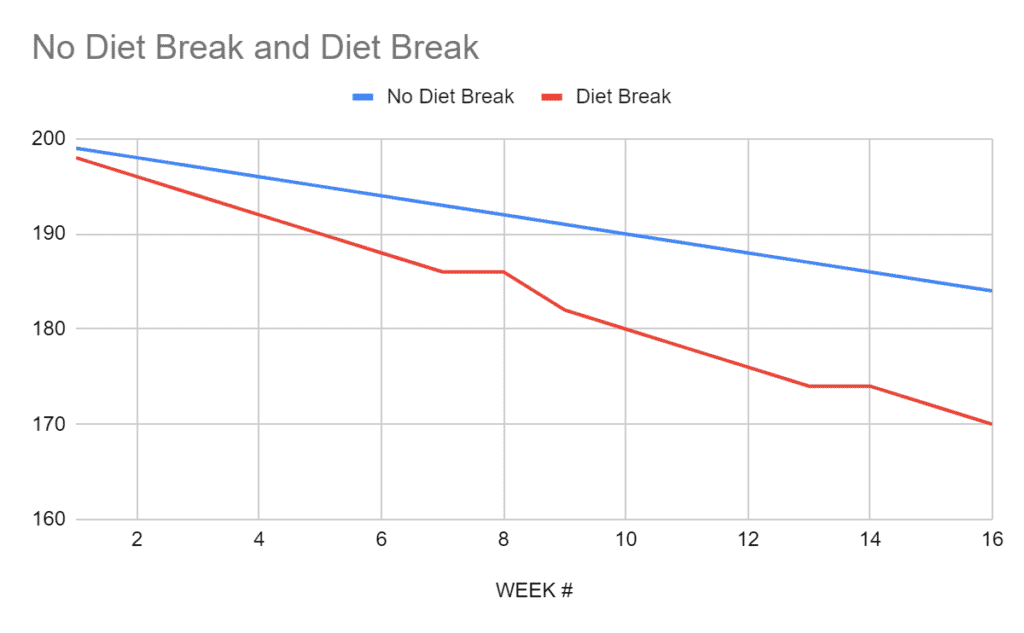
Are There Any Other Options?
Slow dieting is an alternative, if the deficit is low enough then this may be enough to stave off any adaptive thermogenesis, although this is an unknown and dieting for long periods time may have other negative side effects.
You also need to consider that a conservative calorie deficit (100-400 calorie deficit per day) will make the overall diet longer, the longer the diet is the more motivation you’ll need to see it through to the end.
If you’re happy taking the slow and steady approach to weight loss, that’s great, but for most people, a slightly more aggressive deficit (500-700 calorie deficit per day) with a few diet breaks thrown in would be the optimal approach.
Of course, you can go other the other way and be too aggressive with your deficit (in my opinion, anything more than a 1000 calorie deficit per day is aggressive), this isn’t really a sustainable approach to weight loss because for most people, calories are going to be far too low and you’ll end up quitting and taking a diet break forever!
As you can see, all of this is finely balanced, and your best bet is to speak to a coach (like me) who can advise you as to the best approach to take.
Are Diet Breaks Similar To Cheat Days?
Technically, yes, although cheat meals imply a period of reverting to calorie maintenance or surplus that only lasts for a day; this likely isn’t enough to stabilise adaptive thermogenesis, although it doesn’t provide a physiological break, and if that’s all that’s needed to maintain diet adherence, then weekly ‘cheat meals’ could be a better strategy than week-long diet breaks – although both could be combined.
Summary
Unless you have a hard target to hit a certain weight, such as a weigh-in for a sporting event, diet breaks make a lot of sense from an adherence point of view, but also as a strategy to keep REE as high as possible which could allow you to hit your target weight before you quit.
REFERENCES
Metabolic adaptation to weight loss: implications for the athlete: https://www.ncbi.nlm.nih.gov/pmc/articles/PMC3943438/
Intermittent energy restriction improves weight loss efficiency in obese men: the MATADOR study: https://www.nature.com/articles/ijo2017206
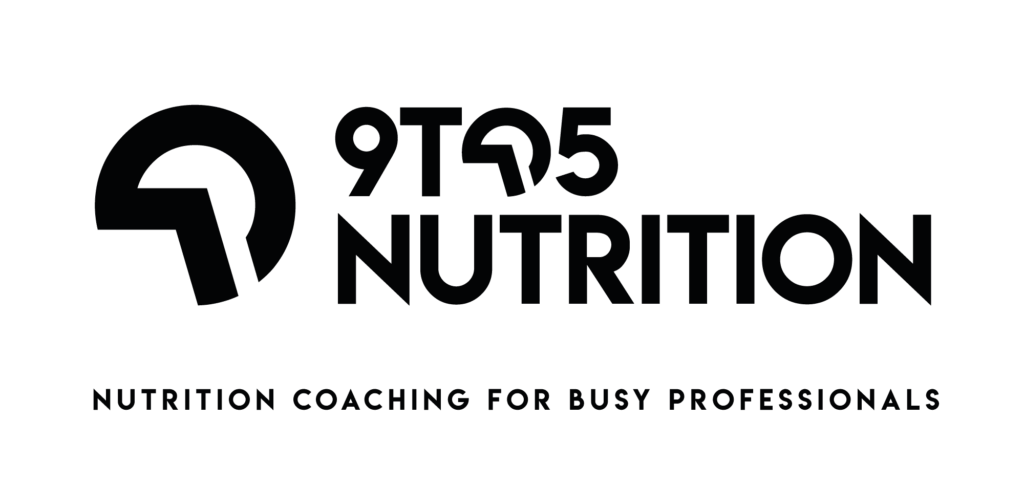
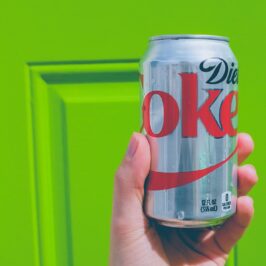
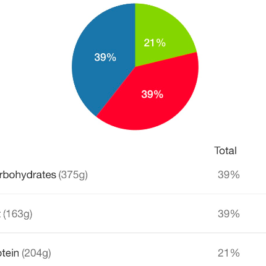
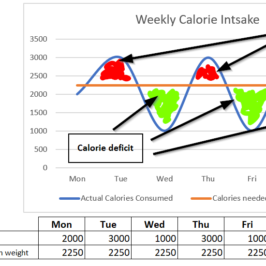
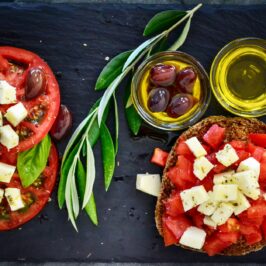
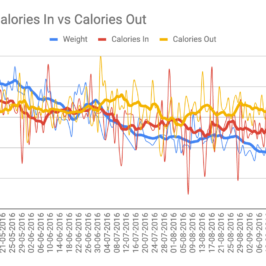
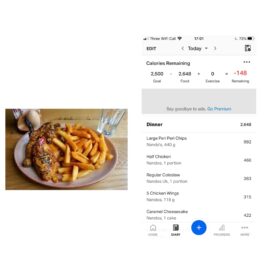
Leave a Reply